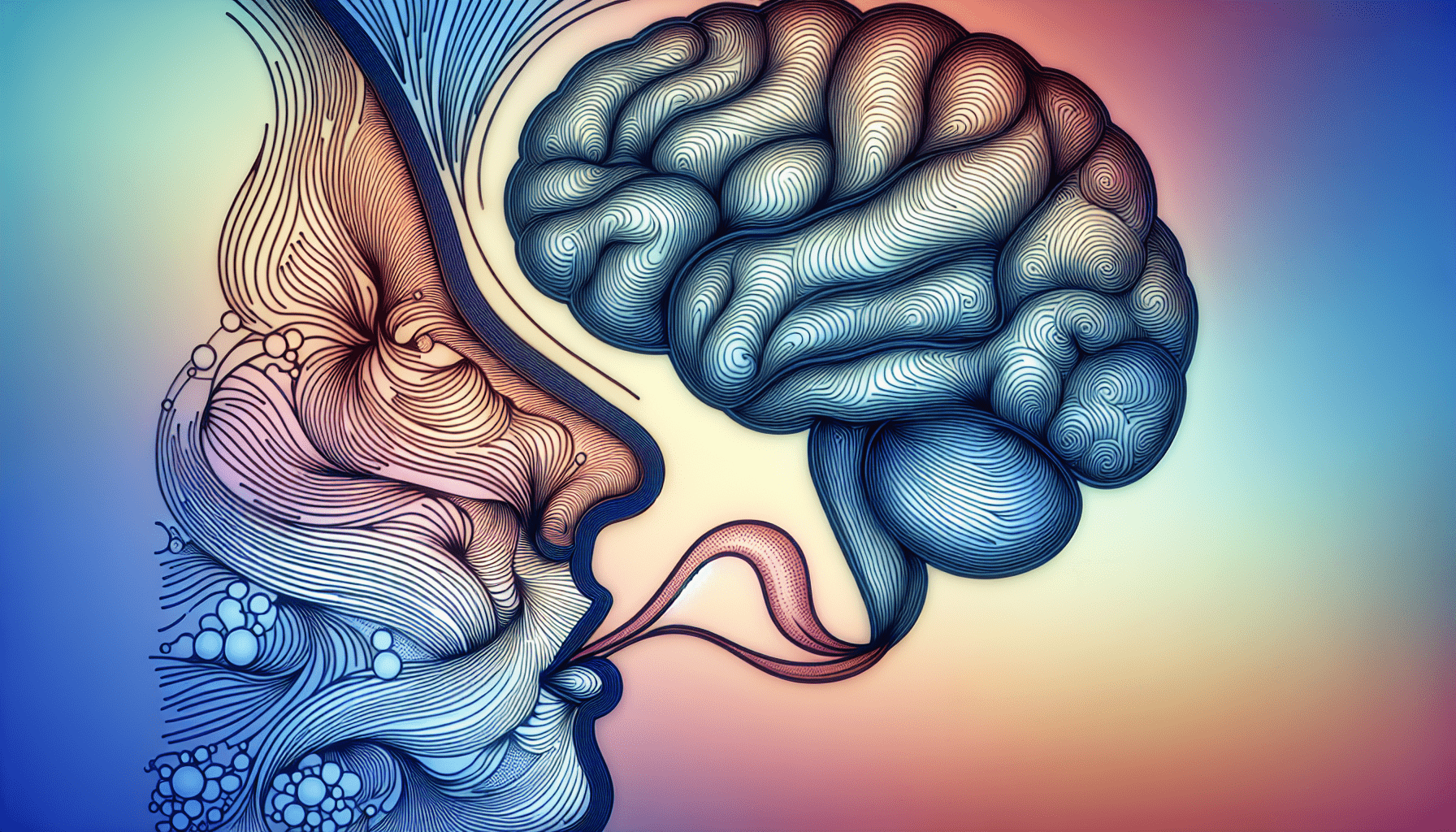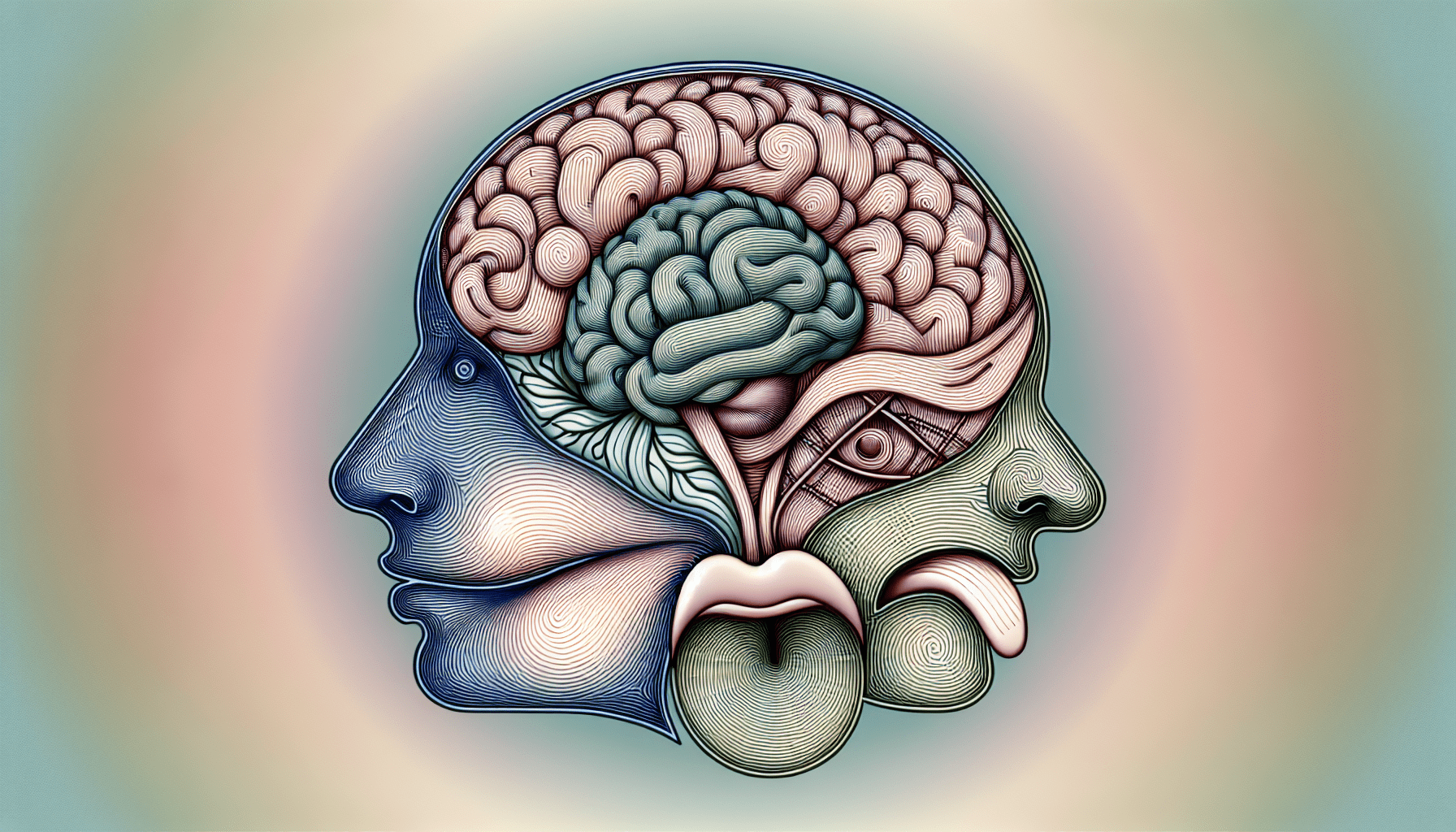Have you ever wondered if the changes you're experiencing with your sense of smell or taste might actually be connected to what's happening in your brain? This article delves into the intricate relationship between cognitive decline and the loss of these crucial senses. You might be surprised to learn how interconnected these aspects of our health are.
Understanding Cognitive Decline
Cognitive decline is a natural part of aging for many, but it can be an indication of more serious conditions like Alzheimer's or other forms of dementia. Memory issues, difficulty concentrating, and challenges with decision-making are common signs. However, how does this relate to your sense of smell or taste?
What is Cognitive Decline?
Cognitive decline is a gradual decrease in the ability to think, remember, and reason. It's sometimes subtle at first, making it difficult to differentiate from normal aging. Yet, it can be an early red flag for neurodegenerative diseases.
Stages of Cognitive Decline
Cognitive decline isn't an all-at-once event; it occurs in stages. These stages can help predict the progression into more severe conditions such as dementia.
- Preclinical stage: Changes occurring in the brain without noticeable symptoms.
- Mild cognitive impairment (MCI): Some noticeable memory or thinking problems that are not severe enough to interfere significantly with daily life.
- Dementia: Significant decline in memory, language, or other cognitive abilities.
Recognizing these stages can help in early diagnosis and manage potential loss of senses like smell or taste.
The Science of Smell and Taste
Your senses of smell and taste aren't just about enjoyment or avoidance; they're deeply intertwined with your survival instincts and memory.
How Do We Smell and Taste?
Our ability to perceive smell and taste depends on complex interactions between our sensory systems and brain. Smell is detected by receptors in the nose, directly linked to the brain's olfactory bulb, which processes these signals. Taste, on the other hand, involves taste buds on the tongue sending signals to the brainstem.
Importance of These Senses
Smell and taste are integral to savoring our favorite meals and detecting dangers like smoke or spoiled food. Moreover, they contribute significantly to the experience of eating and social interactions, which have an emotional and cognitive dimension.

Links Between Cognitive Decline and Sense Loss
Research suggests significant connections between cognitive decline and a weakened sense of smell or taste.
Why Does Cognitive Decline Affect Smell and Taste?
The explanation lies in the shared brain structures involved in these senses. Both the entorhinal cortex and hippocampus, essential for memory and spatial navigation, are vulnerable in dementia. Thus, a decline in olfactory or gustatory function might mirror what happens in the brain as these structures deteriorate.
Studies and Evidence
Numerous studies have demonstrated that a reduced ability to identify smells or tastes is linked with early cognitive decline. For instance, tests involving identification of specific odors often correlate lower performance with the onset of dementia-related symptoms.
Table: Studies on Smell/Taste and Cognitive Decline
| Study | Findings |
|---|---|
| University of Chicago (2014) | Loss of smell was associated with increased risk of Alzheimer's. |
| Journal of Clinical Investigation (2016) | Olfactory impairments detected before significant memory loss. |
| PLOS ONE (2018) | Strong correlation between taste identification difficulty and cognitive impairment. |
Practical Insights
It's not just about identifying smells or tastes but rather how a complete sensory experience is processed by the brain. A discrepancy here may signal overall brain health concerns.
Detecting Cognitive Decline Through Sensory Changes
Can changes in your senses be a diagnostic tool? Let's explore this idea.
Sensory Tests and Screening
Screening tools for assessing smell or taste can potentially indicate cognitive health. These can serve as non-invasive, cost-effective preliminary tests to detect the potential for conditions like Alzheimer's.
Olfactory Identification Test
One common method is the “scratch-and-sniff” test, where individuals identify various scents, revealing deficits that could be linked to cognitive actions.
Regular Monitoring
Regular monitoring of changes in smell or taste, especially if they occur suddenly or drastically, can provide critical insight. Such changes should prompt discussions with healthcare providers regarding potential cognitive evaluations.

Mitigating the Effects of Cognitive Decline
Taking steps to support brain health may help mitigate the related loss of smell and taste.
Brain Health Tips
- Dietary Interventions: A diet rich in omega-3 fatty acids, antioxidants, and vitamins can support brain health.
- Physical Activity: Regular exercise has been shown to improve cognitive function and delay dementia progression.
- Mental Exercises: Activities like puzzles, reading, and learning new skills can stimulate the brain and possibly prevent sensory decline.
Medical Interventions
Healthcare providers may suggest medications or therapies targeting brain health. Meanwhile, symptom management for smell or taste loss can involve workarounds like different seasoning techniques or using aromatic enhancers to stimulate olfactory pathways.
Emotional and Social Impacts of Sensory Loss
The effects of losing smell or taste aren't limited to sensory experience but extend to emotional and social aspects.
Social Engagement
Reduced enjoyment of food or inability to detect smells can affect social interactions, such as shared meals or appreciating ambient scents. This might result in social withdrawal, contributing to faster cognitive decline.
Emotional Well-being
Experiencing a loss in these senses can be distressing, potentially leading to depression or anxiety. Discussing concerns openly with family and healthcare professionals can aid in emotional adjustment.
The Road Ahead for Research and Awareness
The complexity of the relationship between cognitive decline and sensory loss is a burgeoning field of study with ongoing discoveries.
Future Research Directions
Recent advances in neuroimaging and biomarker identification continue to shed light on this connection. Researchers are also exploring how mitigating sensory loss can slow down cognitive decline.
Raising Awareness
Public awareness campaigns about the link between sensory loss and cognitive issues are critical. Early education can encourage timely testing and lifestyle adjustments.
Conclusion
Understanding that your senses might hold clues to your brain's health can empower you to take proactive steps towards wellness. From regular check-ups to staying engaged socially and mentally, being informed can pave the way for a healthier, more vibrant life. If you suspect changes in your senses, seeking professional guidance can be a critical step forward. The conversation about these interconnections continues, offering hope for prevention and management strategies that enhance the quality of life.
